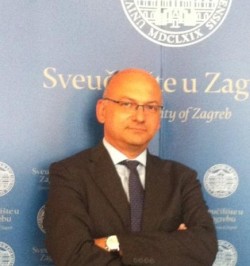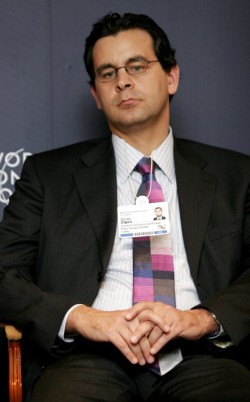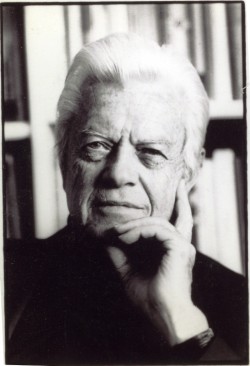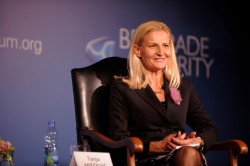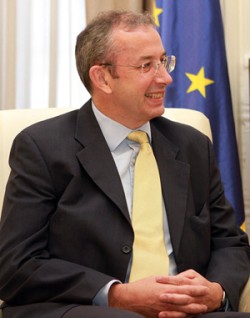Plenary Panel 2: The EU and its Peripheries
In partnership with the Robert Bosch Stiftung
Instability and poverty in large parts of the world, and more specifically in areas known by the very Eurocentric epithet ‘European peripheries’ are increasingly a concern for EU policy makers. This is mostly due to the challenges they pose in the management of migration flows, to the security of European borders and in effect to European solidarity. Nevertheless, they are also seen as concerns regarding the protection of fundamental rights and values beyond EU borders. Security for EU citizens increasingly depends on events in the world and in Europe’s neighbourhood. Destabilization at European borders both south and east, developments following the Arab spring and the Ukraine crisis, to name the most prominent, calls for a stronger and improved EU engagement in world affairs. The EU as a global actor needs to be stronger than the mere sum of its members, yet divergences in foreign policy make it inconsistent and less effective. Pragmatism in the light of demographic trends in the EU also calls for a reinvented approach, more clarity and greater and more coordinated commitment to the vivid and unpredictable peripheries of the EU. In the current MFF 6% of the EU budget is allocated to increasing the role of the EU as a global actor in preserving peace, strengthening international security and poverty reduction, focusing mostly on the immediate neighbourhood (€ 15.4 billion) and the enlargement counties (€ 11.6 billion).
Discussion Topics:
- How effective is the EU in promoting stability, democracy and prosperity in its immediate neighbourhoods, namely Eastern Europe, the Mediterranean, Africa and the Middle East?
- The European Neighbourhood Policy: towards the closest political association and the greatest possible economic integration; is this attractive enough for political and economic reforms?
- Peripheries within the EU – do they cause the most concern? and how can they cope with the increasing challenges they face?
- Inter–institutional set up and coordination between EC and EEAS
- Building democracies, rule of law and good governance in European peripheries – mission possible?
- Intensifying cooperation with civil society actors in the immediate neighbourhoods as a means to develop democracy and inclusive institution building
- Beyond trade and economy and security – what is left?
- The Prospects of Enlargement to the Western Balkans – yet another periphery from within?
Speakers:
Introductory address: Elmar Brok‚ Chair of the Foreign Affairs Committee, European Parliament
Tanja Miščević‚ Head of the Negotiating Team for Accession of the Republic of Serbia to the European Union
H.E. Michael Davenport‚ Head of the European Union Delegation to the Republic of Serbia
Dušan Šiđanski‚ Professor, Special Adviser to the President of the European Commission
Sinan Ülgen‚ Chairman, Centre for Economics and Foreign Policy Studies (EDAM)
Ivan Krastev‚ Chair of the Board, Centre for Liberal Strategies
Mats Persson‚ Director, Open Europe
Dejan Jović‚ Chief Analyst,Office of the President of the Republic of Croatia (Chair)

